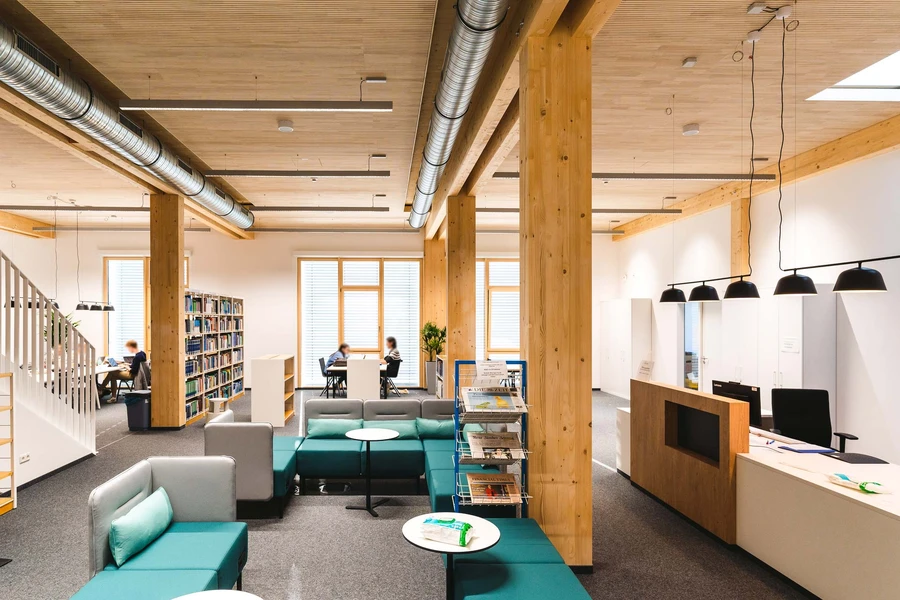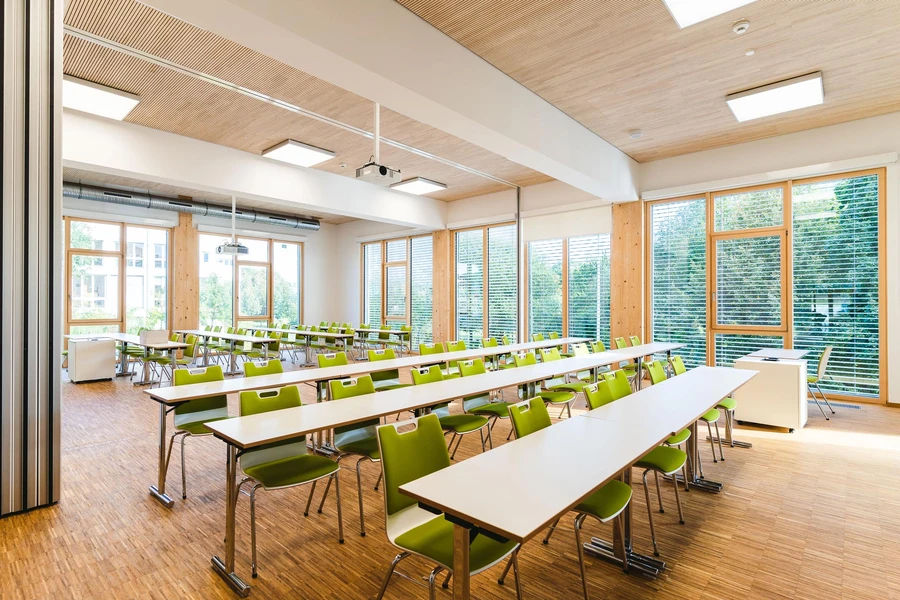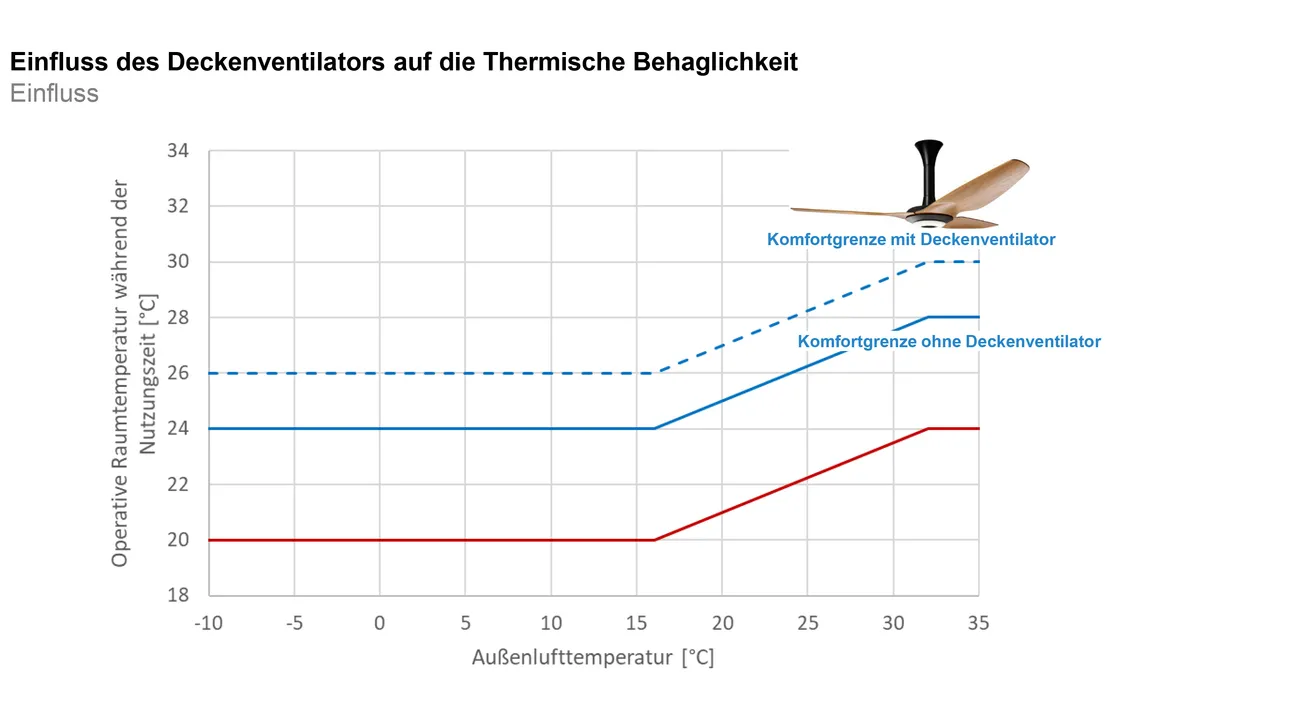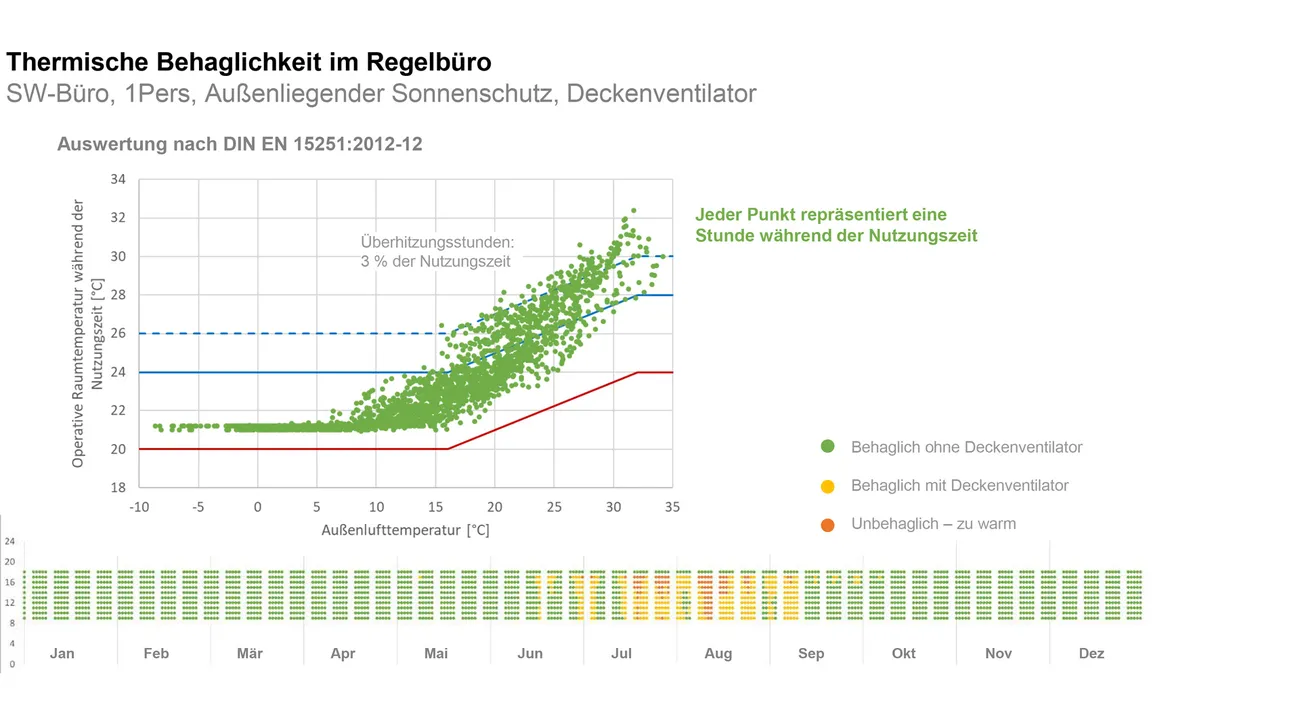Timber constructed Extension for University, Witten, Germany
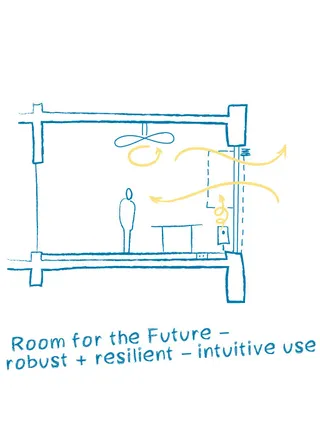
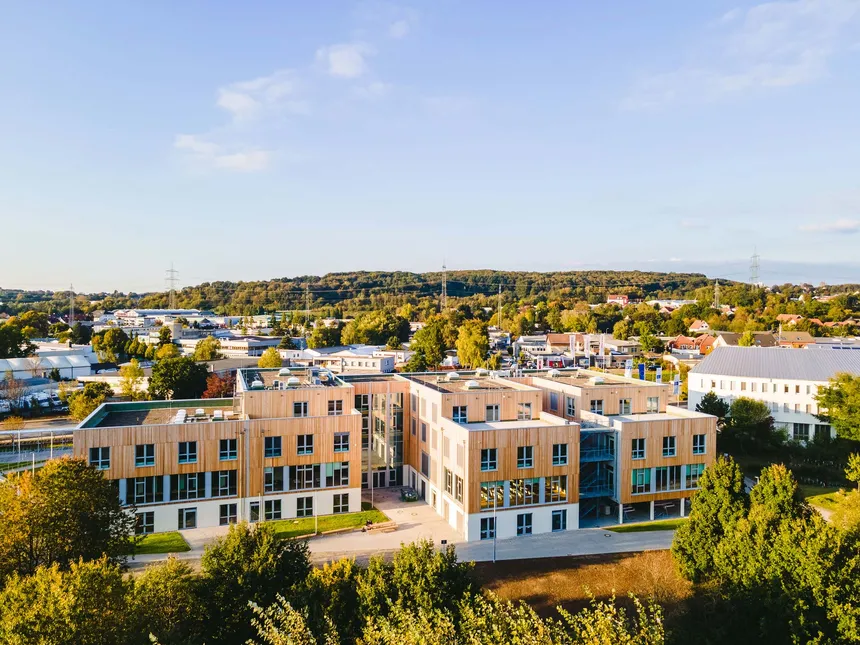
The aim of the extension was to become one of the most sustainable university buildings in Germany concerning Carbon emission, by being energy efficient and sustainably climate-friendly both in construction and operation.
The skeleton construction made of cross-laminated timber has a lot to offer: nine seminar rooms, some of which can be flexibly interconnected for 25-200 people; a multi-story library, café with lounge area, and a room for silence. A large, flexibly usable event room offers space for up to 355 people, more than 50 diverse offices are designed for different focal points of use and 26 study rooms are for student study groups, plus about 100 open study spaces in communication zones. The outdoor space has also been redesigned with a café, learning meadows and other recreational facilities.
The goal of the concept developed by Transsolar was to harmonize maximum user comfort with the optimum in terms of ecology and economy over the entire life cycle of the building. It ensures comfort in all seasons and limits the internal loads of artificial light and equipment. It minimizes transmission and ventilation losses, and with the least possible technical equipment, it allows intuitive building operation.
This is ensured by the compact design of the building with a sufficiently insulated envelope with robust and intuitive systems, adapted to the respective use of the space. Mechanical ventilation is required in areas with a high demand for fresh air, such as seminar rooms, event space and the library. This operates with highly efficient heat recovery, ensuring minimal heat loss in winter. For particularly hot days, it is possible to actively cool the supply air. The seminar rooms receive the supply air via the ceiling and is limited to the necessary amount, controlled as demand dictates by measuring the CO2 level of the room air.
In the offices are naturally ventilated, equipped with radiators with thermostatic valves, switchable sun shading and glare protection. Ceiling fans increase the air velocity in summer and increase comfort on hot days.
The facade with cladding of native larch has wood-aluminum framed windows, structured according to the principle of maximum flexibility and user comfort. The windows can be fully opened, also to be able to clean them from the inside. Floor-to-ceiling and a good 2.60 m high, they let in daylight and offer a view to the outside. Exterior solar shading controls solar loads.
The need for fossil fuels is reduced as much as possible using a CHP unit. Transsolar has pointed out the possibility of further primary energy reduction by integrating photovoltaics on the roof, as well as the benefits of rainwater harvesting and green roofs.
The building will be certified according to BNB standard (minimum silver).

